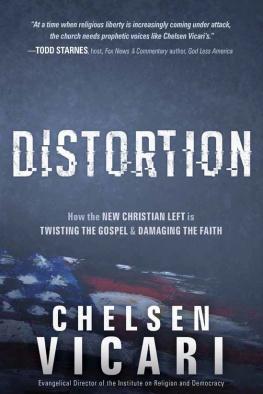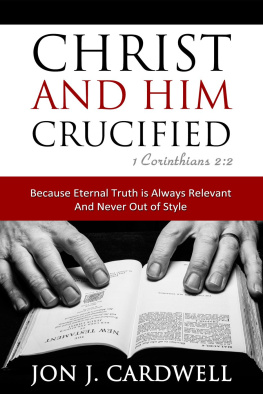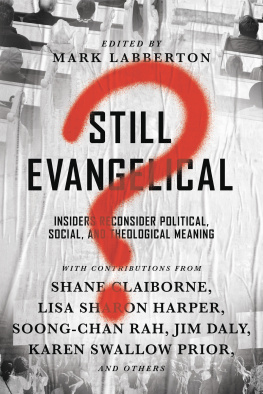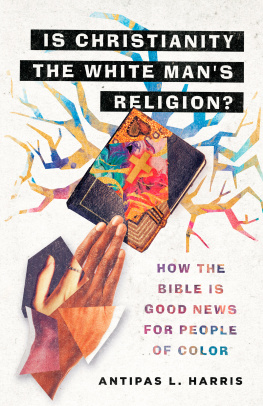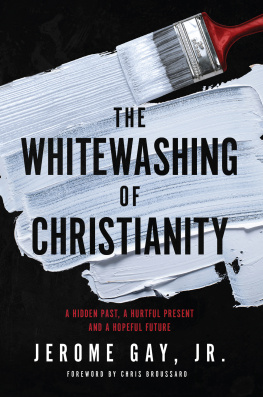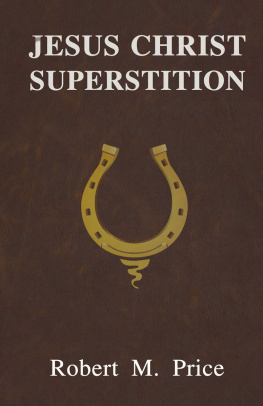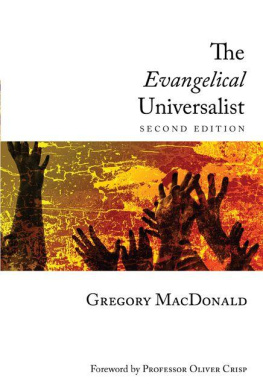
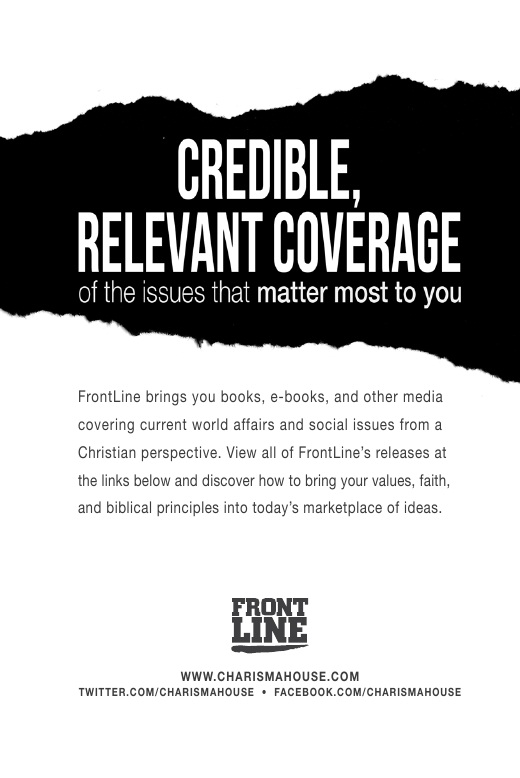

CONTENTS
Chapter 11: Living Out Bold Faith
I GNORE THE PHONE CALL. GET BACK TO WRITING. THIS IS what I was thinking as I wasworking late in my office in downtown Washington DC on a rainy December evening.
I had dealt with a myriad of emotional blows at work that day, and I was weary. Ididnt think I had any strength left to chitchat with what I assumed would be a curiousreader of my blog. I felt as though my world, which revolved around young evangelicals,was crumbling, and no one my age, or older for that matter, seemed to care. Fakingcheeriness was just not an option.
I had spent the entire day trying to scrimp together enough funds to keep alive theInstitute for Religion and Democracys (IRD) new ministry, Evangelical Action. Ireached out to everyone I thought might be willing to financially and prayerfullysupport our unique ministry seeking to revive the social witness of Americas youngevangelicals. Sadly I received a lot of Ill pray about its and a few outrightnoes, and I was feeling pretty discouraged.
On the job as director of Evangelical Action for only two months at that time, Ihad been hired to engage and empower young evangelicals. I knew they had been buyinginto distorted religious teachings, but the more I probed to understand their thinkingand beliefs, the more I realized I needed to brush up on my knowledge of variousNew Age and humanist philosophies, because they were quietly influencing young Christiansbeliefs. As I scoured the Internet for something that would help me wrap my brain around theconcept of existentialism, I came across an article that left me speechless.
It was titled Not Believing Anything. In it a twenty-six-year-old man explainedhow he came to abandon God and embrace a mystical pursuit of greater purpose. WhenI glanced at the authors name, a wave of nausea washed over me as I recognized thebyline. The article was written by one of my close childhood friends. He and I grewup in the same Assemblies of God church. Our parents attended the same small groupand often swapped playdates. In Sunday school this boy knew every Bible quiz answer.I mean, this was the kid I wanted to beat when it came time for sword drills in childrenschurch. He always won. I knew him to love Jesus unlike any other kid in my churchsocial circle. Yet now I was reading about how he decided to let go of God in exchange for a beliefsystem built on nothingness.
There in black and white was yet another example of a young evangelical who had beenwooed away from authentic faith. There was yet another reminder of the great need for a ministry that would help youngChristians discover the truth before they drifted off into error or unbelief. I wantedto see my generation become countercultural for Christ. And yet, where was the supportfor such an effort? Where was the sense of urgency for the future of evangelicalism?
I was sitting at my desk exasperated and disheartened when the phone rang. I wasin no mood to pick up. Thank God I answered anyway.
Praise God, I got through! cracked the jolly voice. I want to help.
The man was a self-described Pentecostal Baptist who had been on IRDs mailing listfor years. Im excited! he said. I can see the impact youre trying to make. Itoo am deeply concerned for the direction of evangelicals.
The jolly voice regretted that he could not offer me financial support because hewas on a fixed income. But the encouragement he gave was priceless. The man whomIll call Allen had served as an evangelist for many years, and he knew firsthandthe challengesfinancial, emotional, and spiritualof calling his generation to returnto the traditional teachings of Scripture.
Allen was now a concerned parent. His daughter was a godly young woman who workedas a nurse in the childrens unit of a major hospital. Passionately pro-life, shestruggled daily with medical decisions that diminished the sanctity of life. Despitebeing ridiculed, Allen explained, his daughter refused to compromise Gods instructionto defend innocent life.
I didnt know others existed who were young and bold for Christ, he said. Andthen I got your ministry letter.
Funny, I replied. I was starting to think the same thing about your generation.Thank God you called!
During that phone call, undoubtedly orchestrated by the good Lord, I felt renewedhope for my generation. I felt relief and thankfulness that there exist concernedparents, grandparents, youth ministers, Sunday school teachers, and pastors who recognizeAmericas spiritual and moral decline and desperately want to find a solution.
Americas grown-ups, who have the ability to influence and pray for young Christians,must not declare defeat and give up on us. Instead, they must start understandingand confronting the false, partisan teachings influencing the next generation ofevangelicals and take back Americas Christian culture.
So when I thought about writing a book on how we prevent the next generation ofevangelicals from drifting away from authentic Christianity and the principles thathave made America great, Allens phone call came to mind. I knew the most importantthing I could do was help concerned family members, teachers, and ministry leadersunderstand how my generation is being deceived and how they can help get Americasmoral majority back on track.
Through this book it is my hope that mentors will be armed with Scripture, historicChristian teaching, and social science that specifically addresses the challengeshomosexuality,feminism, and religious persecution, to name a fewconfronting Christians in a cultureincreasingly hostile to truth in love.
Above all, this book will be a twenty-first-century reminder that just as Christwas deemed offensive for standing for truth, so will His followers. But the goodnews is that Christ never leaves us standing alone.
Allen reminded me of this truth just before we ended the call. Chelsen, he said,it is worth the battle.
It is time for the adults in the room to take a stand once again in the culturewars, this time for the sake of Americas young evangelicals. Through your exampleyour generation can teach my Millennial generation to keep praying, keep acting,keep discerning truth, keep upholding Scripture as the authority, and keep fightingon the battleground where Christianity and public policy collide.
Dear readers, it is worth the battle.
CHELSEN VICARI
Chapter 1
FACING THE PROBLEM
If we really want a Christian society we must teach Christianity.
DOROTHY SAYERS
P EEK BEHIND THE CURTAIN OF SOME HIP OR PROGRESSIVE evangelical churches, pastthe savvy technology and secular music, and you will find more than just a contemporaryworship service. Youll find faith leaders encouraging young evangelicals to tradein their Christian convictions for a gospel filled with compromise. Theyre slowlyattempting to give evangelicalism an updateand the change is not for the good.
Its painful for me to admit, but we can no longer rest carefree in our evangelicalidentitybecause it is changing. No doubt you have seen the headlines declaring thatevangelicalism is doomed because evangelical kids are leaving the faith. It is nosecret that there is an expanding gulf between traditional Christian teachings andcontemporary moral values. But the sad truth is that the ideological gulf betweenAmericas evangelical grown-ups and their kids, aka the Millennials, seems to bewidening too.
Next page
